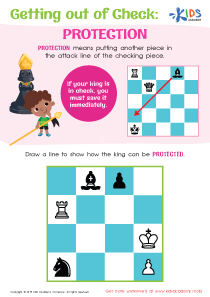Chess strategy learning Extra Challenge Chess Worksheets for Ages 7-8
7 filtered results
-
From - To
Unlock the world of chess for your 7-8 year old with our Extra Challenge Chess Worksheets! Designed to enhance strategic thinking and problem-solving skills, these engaging worksheets encourage young players to delve deeper into chess tactics. Through a variety of fun exercises, kids will learn essential concepts, such as piece movement, positioning, and effective planning. Each worksheet is crafted to stimulate critical thinking and reinforce their understanding of the game. Perfect for home or classroom use, our resources provide a comprehensive learning experience, making chess both enjoyable and educational. Get ready to inspire the next generation of chess masters!
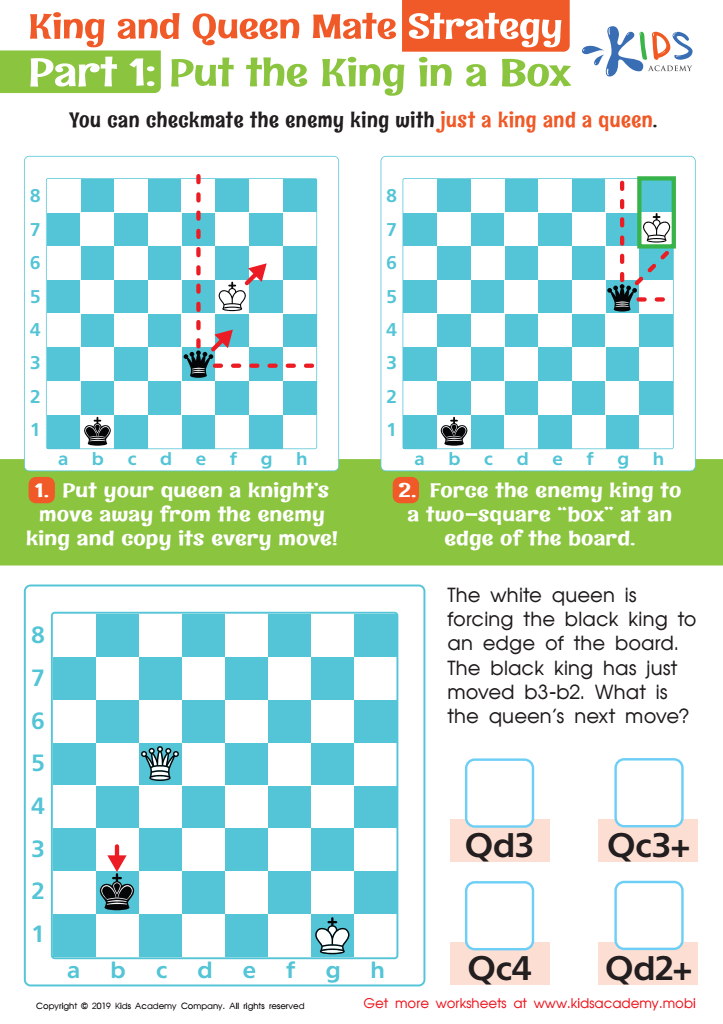

King and Queen Mate Strategy: Part 1 Worksheet
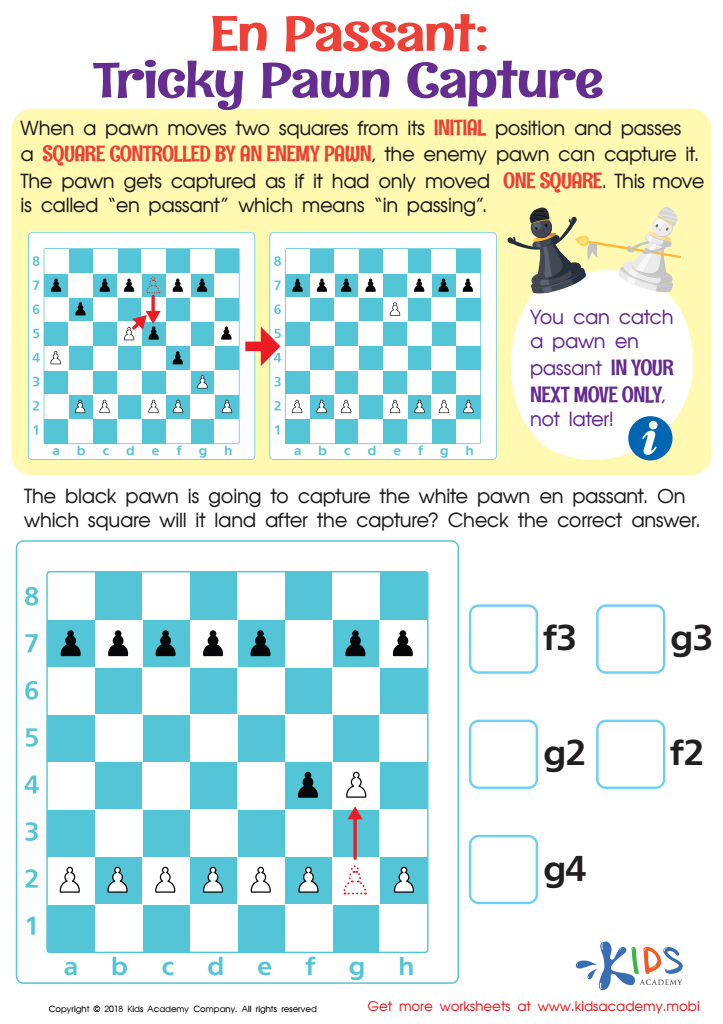

En Passant: Tricky Pawn Capture Worksheet
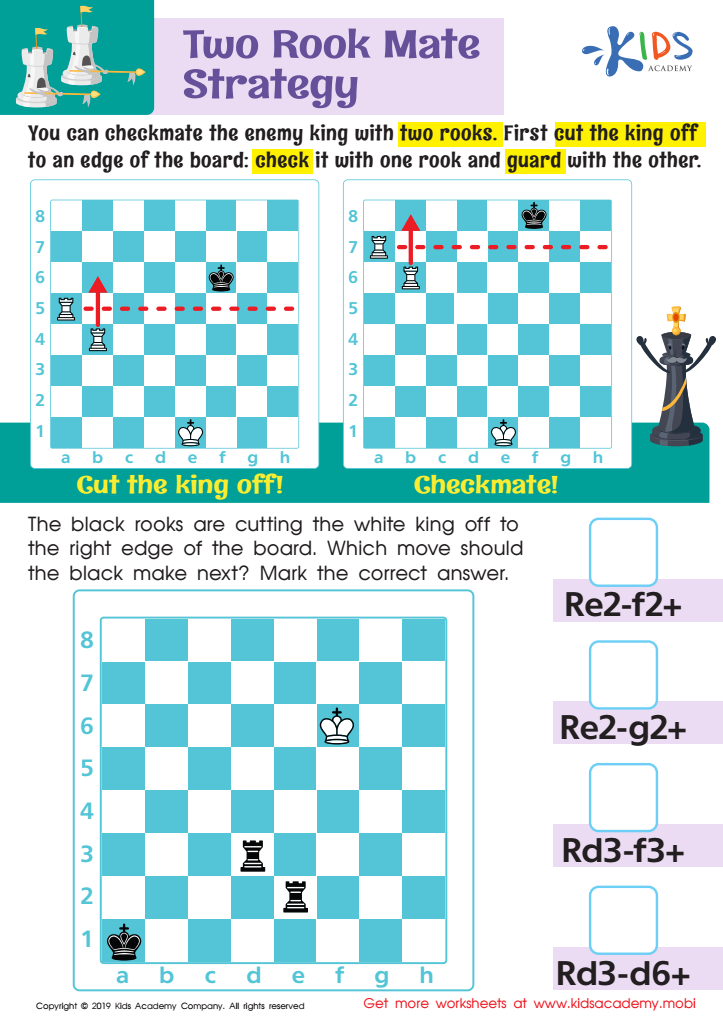

Two Rook Mate Strategy Worksheet
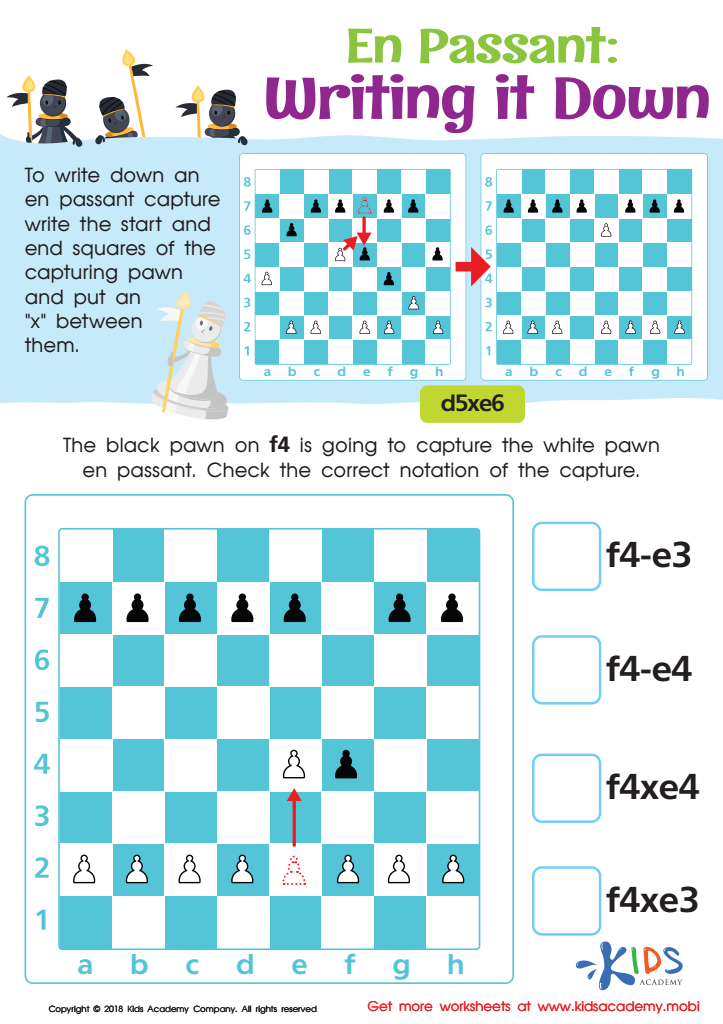

En Passant: Writing it Down Worksheet
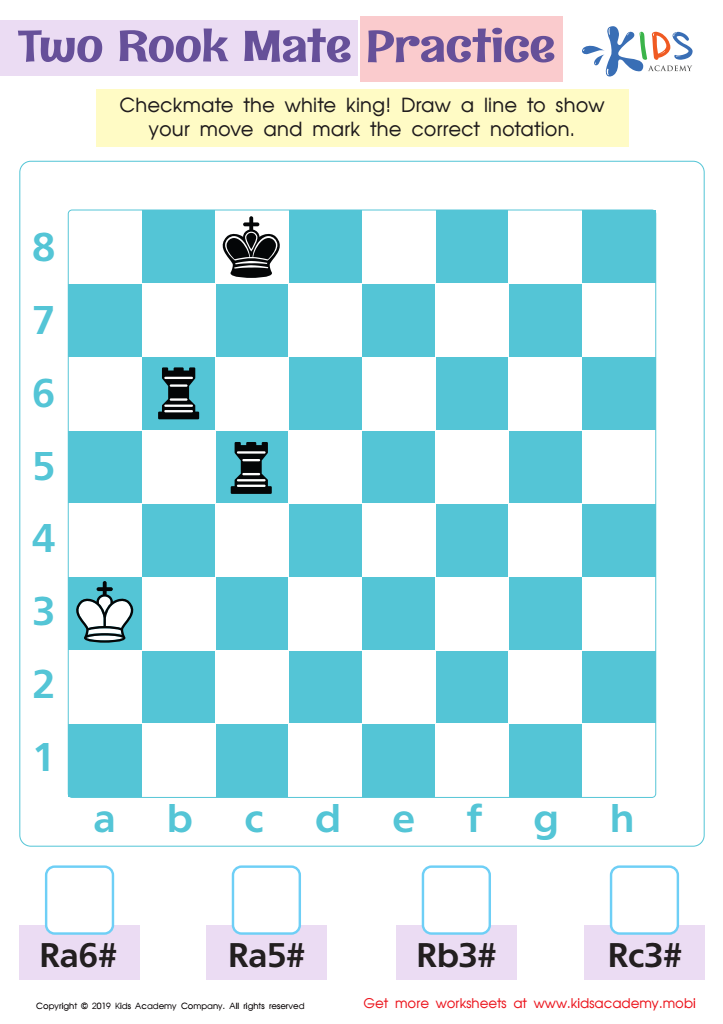

Two Rook Mate Practice Worksheet
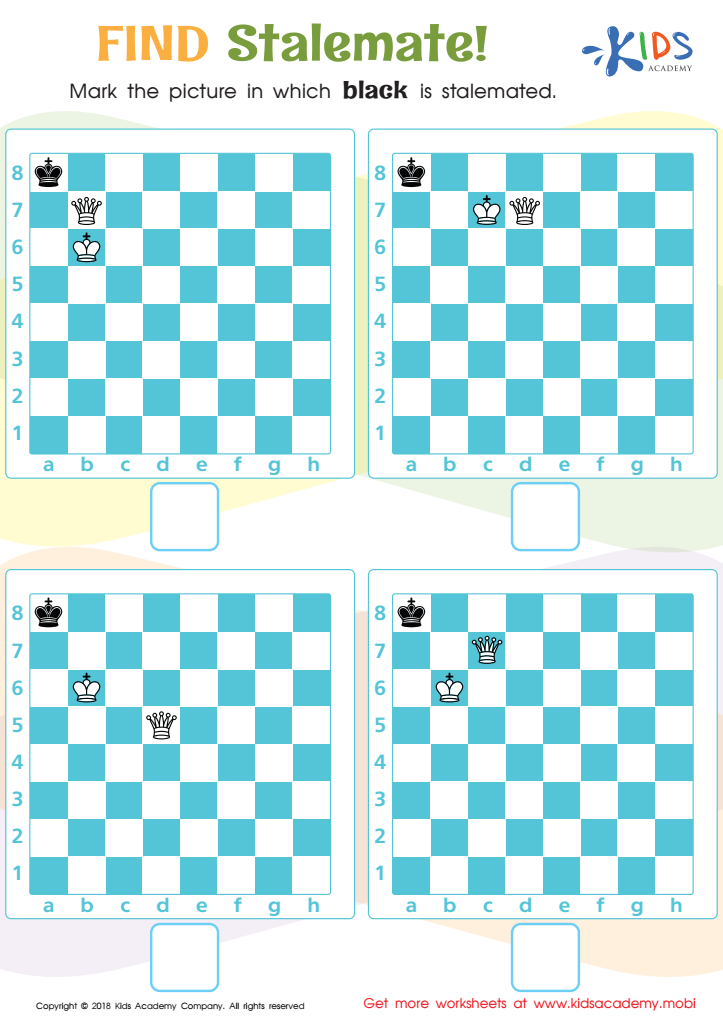

Find Stalemate! Worksheet
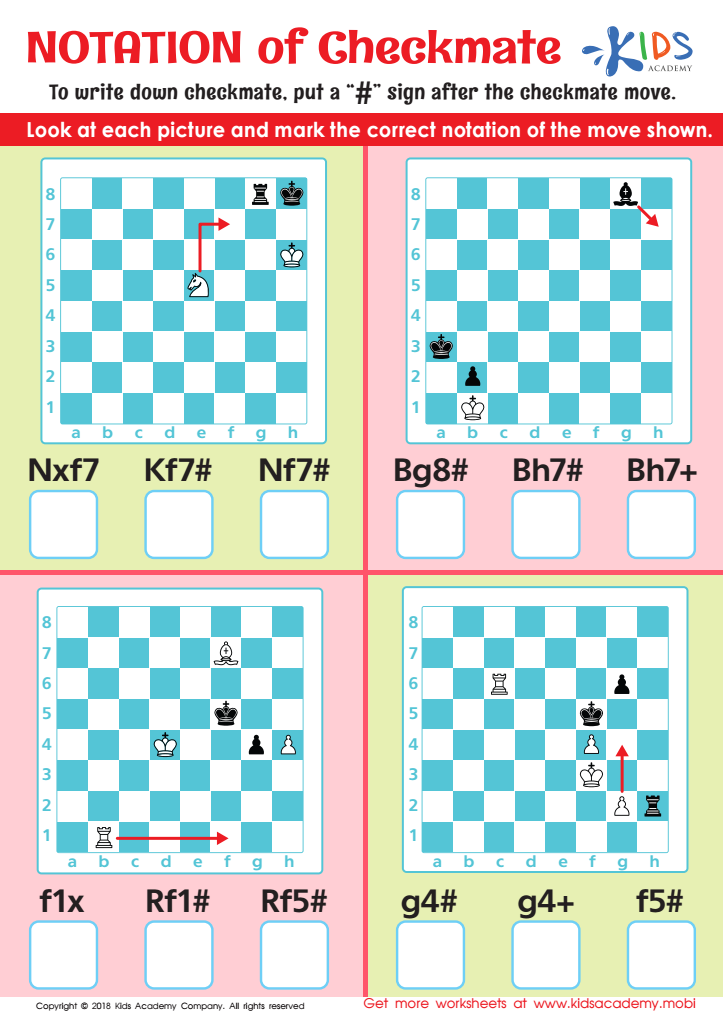

Notation of Checkmate Worksheet
Parents and teachers should prioritize chess strategy learning for children aged 7-8, particularly through programs like Extra Challenge Chess, for several compelling reasons. At this crucial stage of cognitive development, children are honing essential skills such as critical thinking, problem-solving, and decision-making. Chess serves as an engaging educational tool that promotes these abilities in a fun and stimulating environment.
Participating in chess helps children enhance their focus and concentration, as the game requires sustained attention and strategic planning. Learning chess strategies encourages children to think ahead and evaluate potential outcomes, thereby cultivating a sense of foresight and patience. Additionally, the game teaches valuable social and interpersonal skills; players engage in sportsmanship and learn to respect opponents—skills beneficial for personal and academic interactions.
Moreover, chess has been shown to improve mathematical and reading skills, making it an excellent complementary activity to traditional classroom learning. By fostering creativity and promoting analytical thinking, enrolling children in programs like Extra Challenge Chess can lay a strong foundation for lifelong learning. Ultimately, engaging children in chess not only makes learning enjoyable but also equips them with essential tools for future academic and personal success.

 Assign to My Students
Assign to My Students












